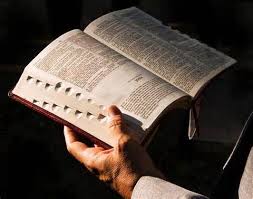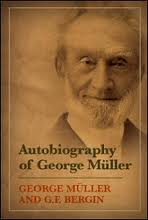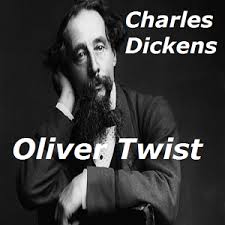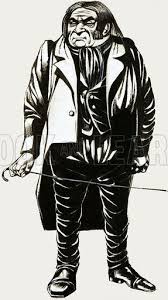H J Harris (b.1903): Reading and Writing
HJ went into the orphanage at age 3 and was there till the age of 14, so any reading that he did as a child consisted of passages from ‘The Scriptural Knowledge Institute or SKI (pronounced “sky”), which was created by George Muller.
What seemed to have an impact on him was reading aloud in front of his classmates for an hour a day, which could have impeded his interest in literature,
‘If he made any mistake, either in pronunciation or emphasis it was up to any other chap to stop him and draw attention to what he thought a mistake’…’Then the pupil would have to read his paragraph again but correct the “mistake”‘.
HJ may have had little control over his reading and writing during his childhood, but his interests and reading subjects during adulthood demonstrates that he is socially and politically aware. He has a keen interest in other forms of media, particularly, radio. In fact it was Radio Four he was listening to when he heard Burnett asking for memoirs of his experiences.
His writing shows that he is educated and well-informed about many subjects. An example of his being self- taught is when he wishes Burnett ‘Good luck to your book. I hope no-one will describe it as “awful”.’ He goes on to explain what he means,
‘Most AWFUL, simply meant WONDERFUL provoking adoration. After all was not Chris Wren’s plans for St Pauls Cathedral so chosen because they were the MOST AWFUL submitted. (Harris, 18/6/78).
HJ clearly understands the changing of meaning of words, dependant on the era. The monarch told Wren that his plans for the new building were ‘awful, pompous and artificial.’
IN HJ’s letters he highlights some areas of interest, including reading George Muller’s autobiography, which shows a keen interest in his childhood and where he grew up.
‘I’ve been thinking to get an idea of the orphanage and people’s attitude toward orphans in the earlier Victorian periods, you could do worse by not aquainting your good self with the life of George Muller’ (Harris, 17/10/83)
HJ’s reading habits as an adult provides evidence that he is politically and socially aware,
‘I am glad you are going to consider my account of Social Conditions in the pre-Myra Curtis Report days.’(Harris, 04/05/78)
Myra Curtis was a civil servant and following her retirement from civil service in 1941 she was appointed by the home secretary to investigate conditions in remand homes-addressing needs of the nation’s problem children. In 1945 she was appointed to head an inquiry into the care of deprived children. The setting up of the Curtis committee was an acknowledgment of the government’s own failings in its treatment of orphans. Had this committee been introduced sooner HJ may not have experienced such deprivation and this is what he meant when he mentioned her in his letter.
One author who made an impact on HJ is Charles Dickens. HJ demonstrated his knowledge of Dickens by citing him several times in his letters, which shows that his work had an impact on him.
Rosenblatt believed that “the reading of any work of literature is, of necessity, an individual and unique occurrence involving the mind and emotions of some particular reader and a particular text at a particular time under particular circumstances.”
Dickens visited several orphanages and institutions and wrote about them in his novels, to call ‘public attention to the system’. However, HJ is annoyed with Dickens version of orphan in Oliver Twist,
‘I think it necessary that, with the Dickensian view people have, a truer picture is made. For instance, young Oliver would not have taken his basin and asked for more.’
HJ cites Dickens again when writing of his teachers,
‘And even Dickens didn’t have a monopoly in funny characters, only we never laughed at them as their ‘jokes’ were usually at our discomfort’ (Harris, 04/05/78)
HJ is referring to Nicholas Nickleby a novel published by Dickens in 1838 and 1839. It centres on Nicholas who must support his mother and sister after his father dies. He is sent by his uncle to be a teacher in a Yorkshire boarding School and it is here where he comes across the evil and tyrannical school master Wackford Squeers, who mistreats the orphans.
HJ mentions Squeers in one of his letters when talking about his school days,
‘I have not attempted to say anything about the idiosynchronicities of the teachers or masters, as people today have various funny traits just as they did at Mullers in my days. All I know now that Squeers was a Christian compared. (Harris, 04/05/78)
HJ is implying that he too was mistreated by his teachers not unlike the children in Nicholas Nickleby.
John Mullan writes that orphans in fiction find happiness, which differs to HJ’s reality who was discharged from the orphanage at age 14, ‘thrown out into a strange world of which [he] knew nothing at all’, and was forced to make his own way in the world. HJ confesses that,
‘I regret there would be no happy ending, and things did not work out right in the end, as so many stories of adversity do.’ (Harris, 18/04/78)
Church, Gladys Westbrook. The Significance of Louise Rosenblatt on the field of Teaching Literature. Inquiry, Volume 1, Number 1, Spring 1997, 71-77
Harris, H.J. Autobiographical letters, 1978-1984, TS, pp.13 (c5,000 words). Brunel University Library
Mullan, John. Childhood and Children’s Literature, The novel 1832-1880. Romantics and Victorians.
Muller, George. The Autobiography of George Muller. London: J. Nisbet & Co. 1881






Leave a Reply